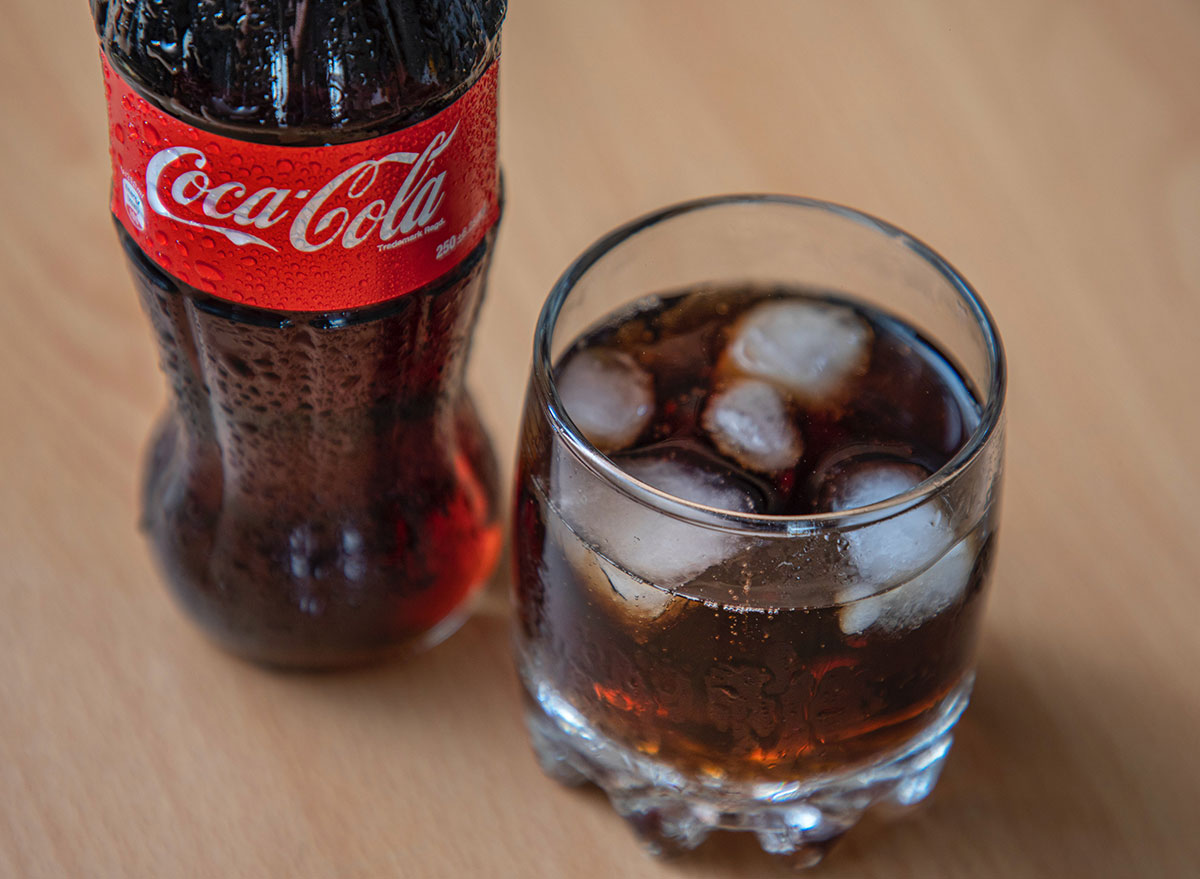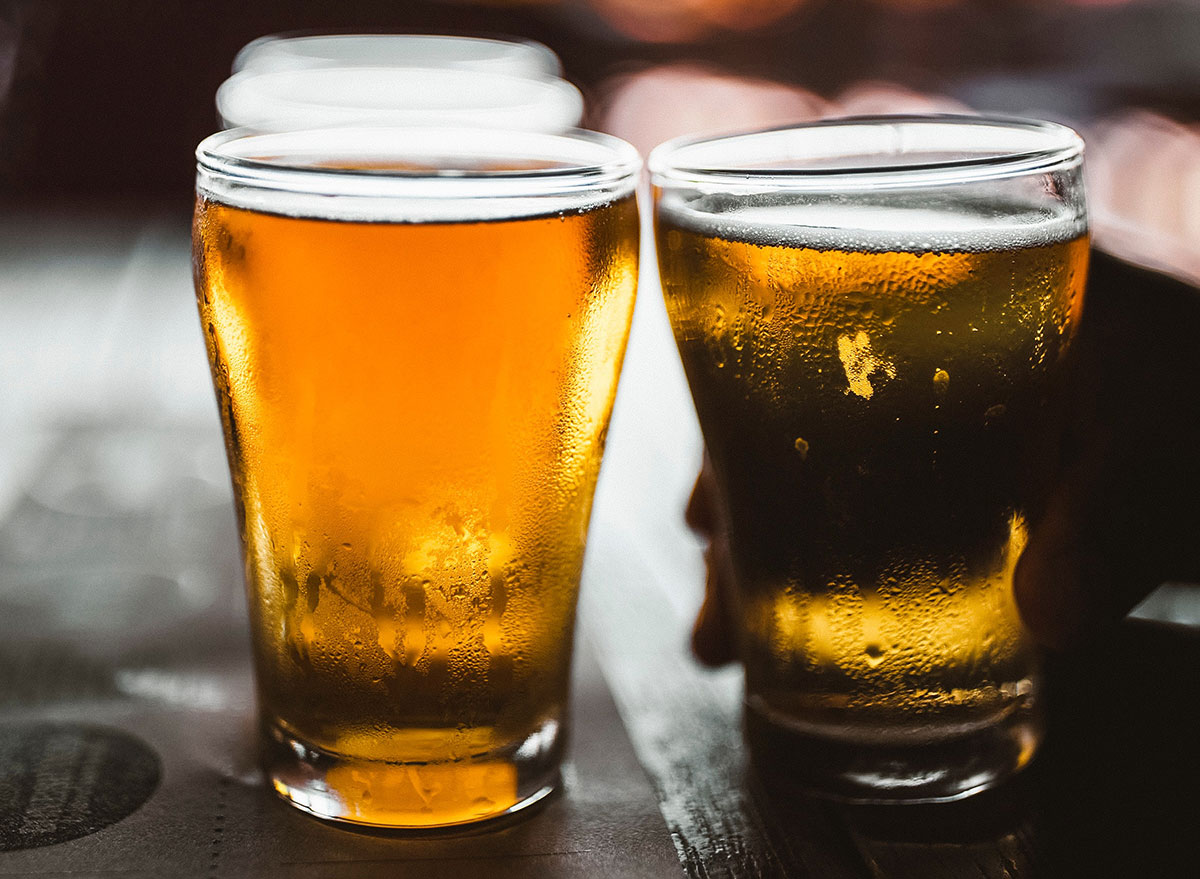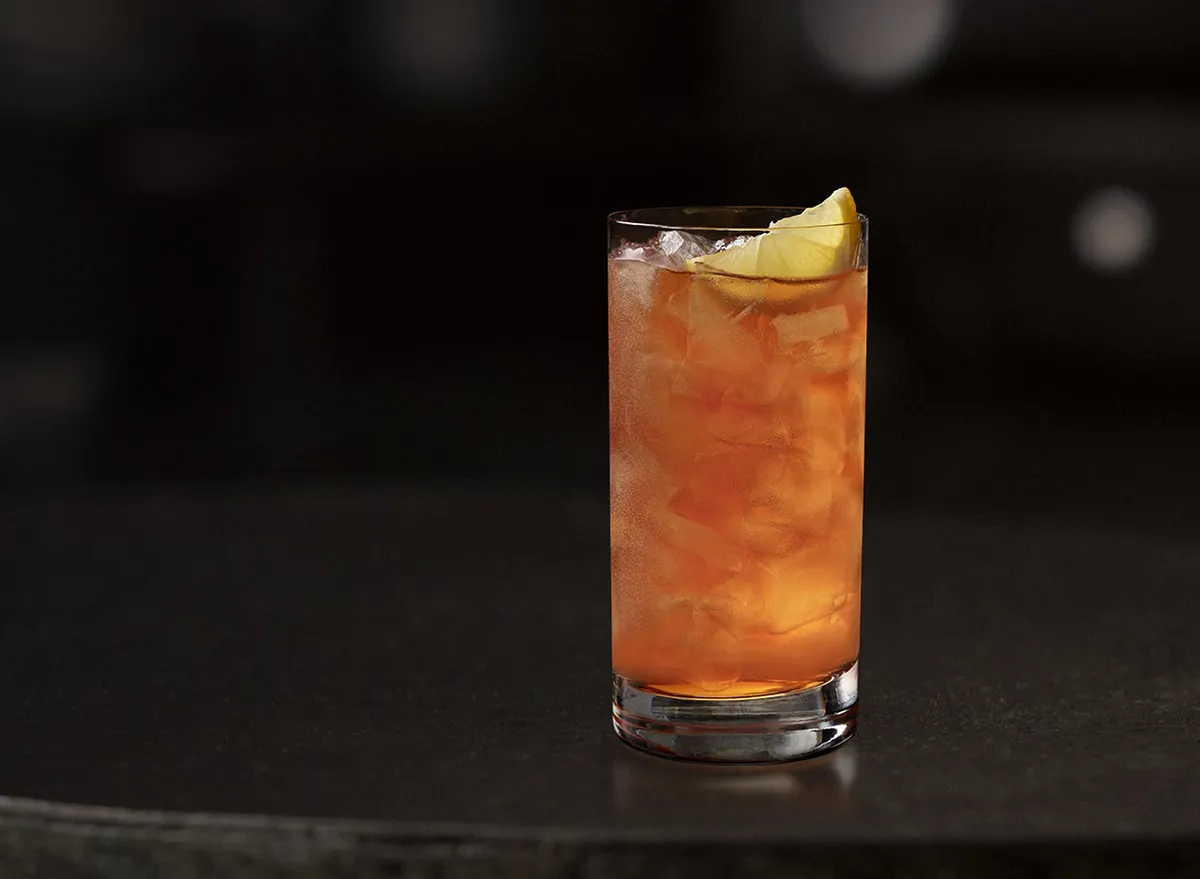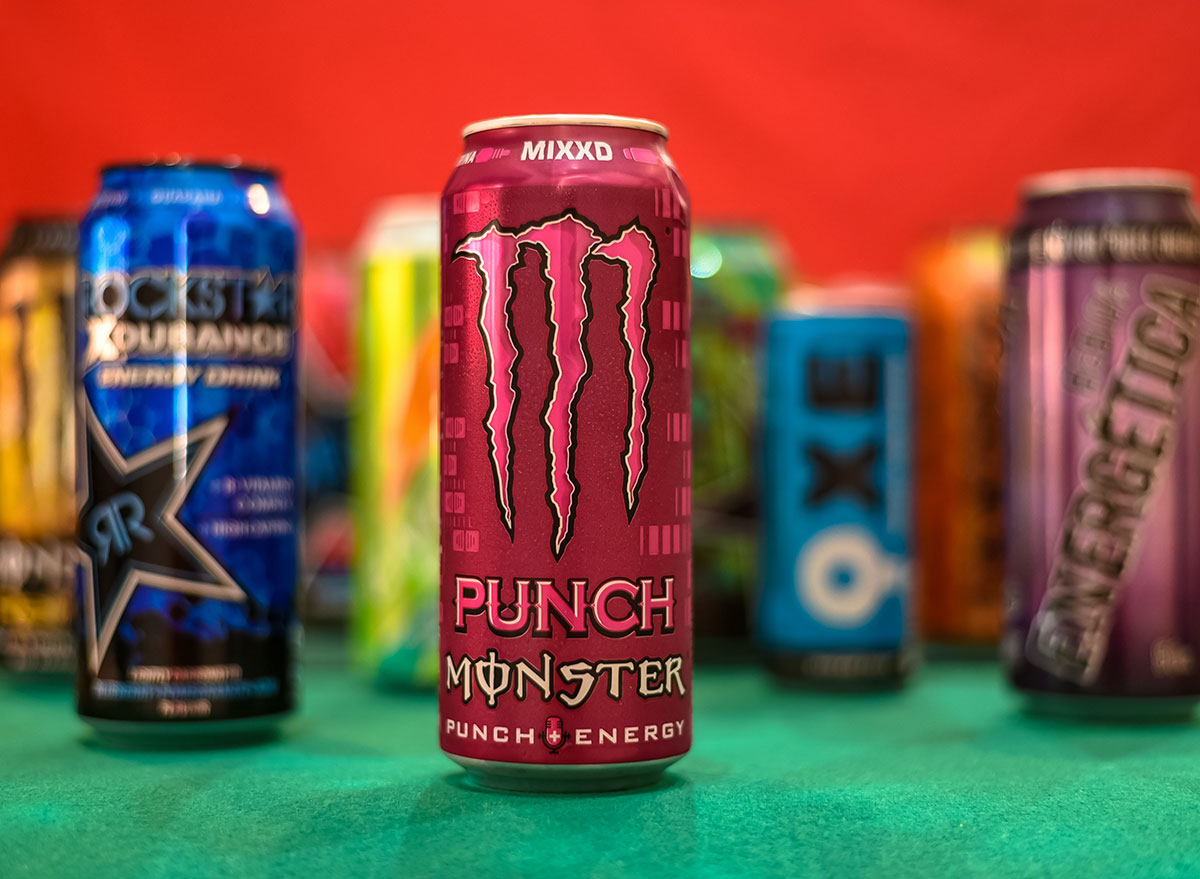When we think about trying to fight inflammation, it's important to look at the whole picture. While there are foods and drinks we can consume that are anti-inflammatory, "there really is no one specific food, beverage or ingredient that causes inflammation," says Amy Goodson, MS, RD, CSSD, LD.
The issue is more about our habits and the things we consume on a regular basis. "In most cases, it is consistent intake of certain foods and/or ingredients that can contribute to health problems ultimately leading to low-grade chronic inflammation," says Goodson.
So when it comes to drinks that might increase inflammation, we have to look at how often the beverages are consumed and the potential health issues they might trigger. "Individuals who regularly consume large amounts of soda, sweet tea, other sugar-sweetened beverages are likely at a greater risk to experience chronic inflammation as a result of other health problems," says Goodson.
With this in mind, here are some drinks that can increase inflammation and lead to other health problems if consumed in excess or over long periods of time.
Soda

Sodas may be delicious, but they are packed full of sugar. Although drinking a can of soda every so often doesn't have instant inflammatory effects, having soda on a regular basis for a longer period of time can lead us down the road of chronic inflammation.
According to a study published in The American Journal of Clinical Nutrition, drinking one can of soda per day led to more insulin resistance and higher cholesterol in the study's participants. They also saw a spike in their CRP (c-reactive protein) levels, which is a common inflammatory marker.
Alcohol

According to Goodson, excessive amounts of alcohol can possibly lead to inflammation over time. "While the American Heart Association and Dietary Guidelines for Americans conclude that moderate drinking can fit into a healthy lifestyle (one drink a day for women and two drinks a day for men), says Goodson, "exceeding this recommendation could result in health problems that contribute to inflammation."
A report found in Alcohol Research also concluded that too much alcohol over time can cause gastrointestinal issues that lead to inflammation. This is because excessive amounts of alcohol can erode some of the intestinal lining and alter our gut microbiota.
Sweet tea

If you grew up anywhere near the south, you likely fell in love with sweet tea at an early age. But this drink always comes loaded with sugar, no matter where you order it. In a 16.9 ounce bottle of Arizona Southern Style Sweet Tea for example, you'll get 43 grams of added sugar.
Excessive amounts of sugar can sometimes lead to weight gain. According to a report in BMC Nutrition and Metabolism, carrying extra weight over a long period of time has been known to cause low-grade chronic inflammation in the body. A glass of sweet tea alone doesn't have the power to cause inflammation, but excess sugary drinks over time might.
Energy drinks

Energy drinks are another beverage that come packed full of added sugar, which can lead to inflammation over time. "Typically large intakes of sugar can lead to weight gain," says Goodson, "which can put individuals at a greater risk for Type 2 Diabetes, heart disease, metabolic syndrome and other health conditions contributing to chronic inflammation."
This study from the Journal of the American Society of Nephrology found that high levels of fructose can lead to more inflammation because of its interaction with our endothelial cells, the cells that help regulate inflammation in our body.
The takeaway

Ultimately, we want to try and stick to only having extremely sugary drinks in moderation. No drink is going to lead to inflammation after just one sip, but excessive consumption of these may lead to greater health issues that trigger chronic inflammation in the long run.
"The best rule of thumb is to focus on water and other low-calorie beverages for hydration," says Goodson, "and if you are looking for anti-inflammatory beverages to help reduce inflammation, look to consume drinks like tart cherry juice, green tea, pomegranate juice, etc."
No comments:
Post a Comment